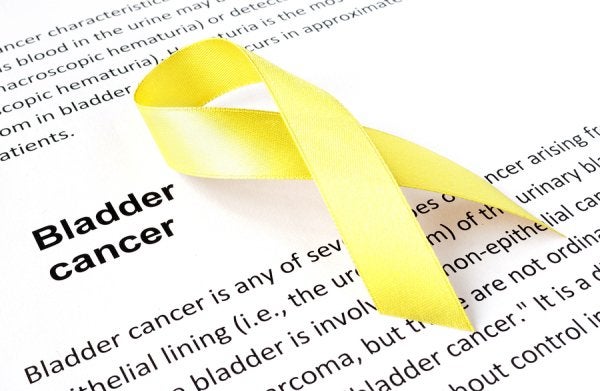How is Bladder Cancer Diagnosed and Treated?
Bladder cancer accounts for about 90% of all cancers of the urinary tract, and transitional cell carcinoma makes up about 90% of all bladder cancers. According to the American Cancer Society, about 75,000 new cases of bladder cancer have been diagnosed so far in 2015. The good news is that the long-term prognosis for people who have bladder cancer is better today than ever before. This brief article touches on bladder cancer diagnosis and treatment, and explains how to set up a bladder cancer screening with a urologist in Nashville.

Bladder Cancer Symptoms
Before a doctor can examine you for bladder cancer, you must first exhibit or recognize one of the symptoms of bladder cancer in order to seek a diagnosis. The most common symptoms of bladder cancer include blood or blood clots in the urine, chronic pain during urination, urinating small amounts frequently, and a frequent occurrence of urinary tract infections. Symptoms of more advanced cancer include pain in the lower back around the kidneys and a growth in the pelvis area near the bladder.
Diagnosing Bladder Cancer
The first thing your doctor will do is perform a physical exam and ask questions regarding your lifestyle, exposure to cancer-causing chemicals, and family history of cancer. A urologist will collect a urine sample to check for the presence of blood, infection, and other abnormal cells that indicate bladder cancer. If the urologist has any cause for concern, he or she will perform a cystoscopy to look at your bladder using a thin, lighted tube and take biopsies of abnormal areas to test for cancer cells or tumor markers. If cancer cells are detected, various tests will be performed to classify the stage and grade of the bladder cancer.
Treating Bladder Cancer
Treatment for bladder cancer depends on the stage and grade of the cancer, as well as your age, overall health, and quality of life. Treatment options for bladder cancer include surgery, chemotherapy, radiation therapy, and immunotherapy. Bladder cancer prognosis is highest for people who get treated early, so don’t hesitate to get screened if you notice any of the symptoms of bladder cancer.
You can count on the experienced urologist at Urology Associates P.C. to answer all of your questions regarding bladder cancer diagnosis and treatment . Contact us online or call us at (888) 329-7700 to schedule a bladder cancer screening in Nashville or to learn about your bladder cancer treatment options in Tennessee if you have already been diagnosed with the disease.
Recent Posts
categories
- Uncategorized
- Bladder Cancer
- Women's Sexual Health
- MonaLisa Touch
- Urology
- Urologist
- Erectile Dysfunction
- Kidney Cancer
- Incontinence
- Prostate
- MonaLisa Touch Laser Treatment
- Kidney Stones
- Urinary Tract Infections
- Event
- Sexual Dysfunction
- Testicular Cancer
- Prostate Cancer
- Urology Surgery Center
- urinary incontinence
- vaginismus
- noncoital pain disorder
- Hypoactive Sexual Desire Disorder
- Infographic
- provenge
- Xofigo
- robotic surgery
- hormone replacement
- diabetes
- renal cell carcinoma
- pelvic pain
- hematuria
- sexual health
- chronic testicular pain
- premature ejaculation
- Men's Health Clinic
- Dr. Melvin Seard
- Interstitial Cystitis
- vasectomy
- overactive bladder
- vaginal atrophy
- nocturia
- bladder infections
- urethral strictures
- Acute Epididymitis
- low sex drive
- circumcision
- pelvic floor dysfunction
- Peyronie's Disease
- prostatitis
- female sexual dysfunction
- varicocele
- difficult urination
- low libido
- PSA levels
- male fertility
- penile prosthesis
- prostatic intraepithelial neoplasia
- male infertility
- estrogen levels
- nurse navigator
- stress urinary incontinence
- vaginal yeast infection
- elevated psa
- painful sex
- adult circumcision
- epididymitis
- OAB
- kidney infection
- penile cancer
- pelvic organ prolapse
- Vasectomy Reversal
- bone health
- cystectomies
- clinical trials
- bloody urine
- Advanced Therapeutic Center
- WISH MedSpa
- neurogenic bladder
- WISH Team
- prostate biopsies
- BPH
- fecal incontinence
- lithotripsy
- osteoporosis
- kidney cysts
